Michael Anderson explains his journey from Christianity to Paganism.
“It’s exhilarating to be alive in a time of awakening consciousness; it can also be confusing, disorientating and painful.” — Adrienne Rich “I have always tried to remain unbiased and curious – rerum novarum cupidus.” – C. G. Jung, 1949.
At first impression, my title may sound a little defensive or even reactionary. I will not deny either. There is probably a little truth in both. However, the main implication of my title is an affirmation of my faith and path as a Pagan(1) walking the Red Road(2). It contains the 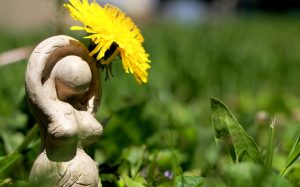 acknowledgement of the spiritual struggle which involved the personal inner battle with my Catholic Christian roots and the external conflicts of living in a Pagan-intolerant Christian society. After many years, I am at peace with these conflicts; however, I share these external and internal struggles with many of my fellow Pagan sisters and brothers. Feelings of alienation, discrimination and even victimization are common experiences for us Pagans even in today’s modern society. This article is about self-realization and self-affirmation as a Pagan “convert.”
acknowledgement of the spiritual struggle which involved the personal inner battle with my Catholic Christian roots and the external conflicts of living in a Pagan-intolerant Christian society. After many years, I am at peace with these conflicts; however, I share these external and internal struggles with many of my fellow Pagan sisters and brothers. Feelings of alienation, discrimination and even victimization are common experiences for us Pagans even in today’s modern society. This article is about self-realization and self-affirmation as a Pagan “convert.”
While discrimination or victimization may be too strong of terms to describe all Pagans’ experience, most of us experience minimally being misunderstood, excluded or forgotten. For the fortunate few who were born into a non-religious home or raised in a more tolerant religious atmosphere such as Unitarian Universalism, their Paganism may be at least accepted even if it is not understood. However, for many of us raised in traditional Christian homes and schools, alienation to discrimination is a part of our experience. This past and current reality can not be ignored, nor should it be sugar-coated. To be healthy is not to remain silent on who we. To remain free is not to submit to intolerance and discrimination. For us who have dared to leave the fold of “true believers” and cross to the other side–the forbidden “land of the damned” our course is not without its consequences.
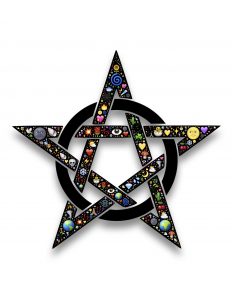 Historically, our plight has been far worse as illustrated by years of torture and executions in Europe and the United States. During the ‘burning times’ in Europe, it has been estimated that some 9 million people, mostly women, condemned as witches by the “holy” Christian church and were consequently executed and tortured(3). It was also a convenient way for the church to acquire the property of wealthy widows and others. Although in 21st century America, we are no longer executed as in Salem, we are needless to say affronted by an array of hostilities, fear and ignorance. Some may balk at the use of such extreme words to describe our experience. However, many of us who have been raised Christian find ourselves not only at odds with society at large but with some of our own spouses, family members and friends.
Historically, our plight has been far worse as illustrated by years of torture and executions in Europe and the United States. During the ‘burning times’ in Europe, it has been estimated that some 9 million people, mostly women, condemned as witches by the “holy” Christian church and were consequently executed and tortured(3). It was also a convenient way for the church to acquire the property of wealthy widows and others. Although in 21st century America, we are no longer executed as in Salem, we are needless to say affronted by an array of hostilities, fear and ignorance. Some may balk at the use of such extreme words to describe our experience. However, many of us who have been raised Christian find ourselves not only at odds with society at large but with some of our own spouses, family members and friends.
Two vivid examples of the ignorance and fear of Paganism in our larger society are the horrific events of September 11 and the record-selling Harry Potter books and movies. What could these two dissimilar events have possibly in common? The first being a Radical Islamic Terrorist attack against American civilians killing thousands with our country entering a state of war and the latter being an apparently harmless fantasy stories. In the wake of 9-11 two national Christian fundamentalist(4) leaders blamed the terrorist bombings on an act of God. The late Rev. Jerry Fallwell on the Rev. Pat Robertson television station stated that 9-11 was divine justice against a fallen America. He blamed the “Pagans, homosexuals, feminist” and a host of other groups that he and other fundamentalist have long preached against. Fallwell later apologized, but he already showed us his true heart. For two national Christian leaders to say such an appalling statement while thousands of Americans were mourning the loss of their loved ones, exposes the ignorance behind this narrow religious agenda.
I told my devout Catholic mother if these Christian ministers were representing the Christian God as they portray that I would have left the church much earlier than I did. These sentiments were offensive to many Americans, Pagans or not. These statements and attitudes must not be forgotten. Remember this same line of religious reasoning was applied by fundamentalist and evangelicals to the AIDS epidemic when it first hit. Among these holier-than-thou Christians was the verdict that their view of the Bible was vilified. They preached that the AIDS epidemic was sent by God to punish the sinful homosexuals. This way of believing was scary back then and still is. History, as it has been said, tends to repeat itself if we forget its lessons.
The other example is Harry Potter. The Christian backlash against the  movie and books speaks of their paranoia against anything that smacks of the occult or witchcraft. While I took my children to see the first movie, a relative who is a non-church going Christian voiced concern about exposing her children to the sorcery aspects. The cries from Christians of “evil” and “satanic” went as far as ministers conducting book burnings and engaging in protests. What are they actually afraid of? Is this fantasy series not much different than the classics of magic which older generations grew up with, such as Peter Pan and Wizard of Oz. The classical writer C. S. Lewis, who was a very religious Christian, in The Chronicles of Narnia, created a world with talking animals, wonders to amaze us and magic beyond belief. Are they afraid their children might start getting mail delivered by an owl or somehow learn a Cheering Charm? Perhaps they’re petrified by the thought of America’s youth actually thinking for themselves.
movie and books speaks of their paranoia against anything that smacks of the occult or witchcraft. While I took my children to see the first movie, a relative who is a non-church going Christian voiced concern about exposing her children to the sorcery aspects. The cries from Christians of “evil” and “satanic” went as far as ministers conducting book burnings and engaging in protests. What are they actually afraid of? Is this fantasy series not much different than the classics of magic which older generations grew up with, such as Peter Pan and Wizard of Oz. The classical writer C. S. Lewis, who was a very religious Christian, in The Chronicles of Narnia, created a world with talking animals, wonders to amaze us and magic beyond belief. Are they afraid their children might start getting mail delivered by an owl or somehow learn a Cheering Charm? Perhaps they’re petrified by the thought of America’s youth actually thinking for themselves.
Let’s be clear that this article is not an assault against Christianity nor is its purpose to extol the virtues of Paganism at the expense of Christianity. This would be contrary to who we are. Pagans do not have the need to proselytize. We are not under the obligation to convert others to any so-called ‘true’ way. Unlike much of Christianity, we are not spiritual supremacists.
 My perspective on Christianity expressed here may be analogous to getting out of a bad marriage. Sometimes people getting out of bad marriages need to get together and talk about their painful relationships with others of like experiences. They have a need to talk of the lies and deceptions, not out of malice, but just because it helps. They wish their ex-spouse no ill will coming to an acceptance of their differences and knowing that a separation was best. So it is with our recovery from the Christian indoctrination we experience. As Pagans, we wish our Christian brethren no ill will and accept their path for them. Freeing ourselves from the bondage of our fundamentalist or doctrinal upbringing takes years. While others are never ever able to unravel the damage.
My perspective on Christianity expressed here may be analogous to getting out of a bad marriage. Sometimes people getting out of bad marriages need to get together and talk about their painful relationships with others of like experiences. They have a need to talk of the lies and deceptions, not out of malice, but just because it helps. They wish their ex-spouse no ill will coming to an acceptance of their differences and knowing that a separation was best. So it is with our recovery from the Christian indoctrination we experience. As Pagans, we wish our Christian brethren no ill will and accept their path for them. Freeing ourselves from the bondage of our fundamentalist or doctrinal upbringing takes years. While others are never ever able to unravel the damage.
Like the majority of Pagans, I was born into a Christian home. My upbringing was not only Christian, but Roman Catholic that included ten years of Catholic schools with daily religious instruction. Those of you raised Catholic know that I have struggled with a ‘double-whammy’ so-to-speak. Plus, I just wasn’t Catholic. I was a devout Catholic. As a boy I kept a prayer diary of my nightly prayers. In 9th grade I read the New Testament cover to cover and have read it numerous times since. How many 9th grade boys, or adults for that matter, have read the entire New Testament? Where many parents struggle with their children to attend Sunday church services, I attended church willingly. I even rode my bike to weekly mass in the summers.
To further illustrate the seriousness of my Christian journey, I had a 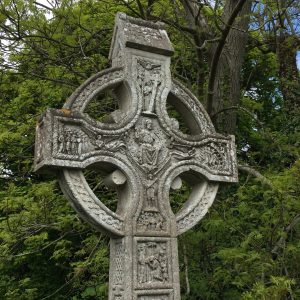 “calling to the priesthood” from 1st to 7th grades. This calling was explained to me was from God. As a boy, I visited a seminary, corresponded with an African missionary and was an altar boy. In my 30’s I pursued my early vocation to the Christian ministry and attended a Protestant seminary. This entailed a commitment of leaving my job, going into debt and living below poverty level with my new wife. Now as a Pagan secure in my spiritual path, I can embrace this “Christian” calling as the same as my “Pagan” calling, just a different manifestation. As much as some Christians will not want to hear it, I have tried harder than many Christians at being Christian from altar calls to all the above.
“calling to the priesthood” from 1st to 7th grades. This calling was explained to me was from God. As a boy, I visited a seminary, corresponded with an African missionary and was an altar boy. In my 30’s I pursued my early vocation to the Christian ministry and attended a Protestant seminary. This entailed a commitment of leaving my job, going into debt and living below poverty level with my new wife. Now as a Pagan secure in my spiritual path, I can embrace this “Christian” calling as the same as my “Pagan” calling, just a different manifestation. As much as some Christians will not want to hear it, I have tried harder than many Christians at being Christian from altar calls to all the above.
It’s interesting to realize that for some it is harder to deal with me now as a professing Pagan and Wiccan(5) than when I was an Agnostic. Why would this be? My guess is that Agnosticism is not perceived as challenging to Christian’s beliefs as Paganism since an Agnostic doesn’t have a belief system in the common usage of term. In this sense, it can be viewed as a neutral stance. How threatening is that to a Christian? An Agnostic is one who neither believes nor disbelieves in a God or divine reality. For me I never disbelieved in the spiritual or divine but was mainly disillusioned with the Christian baggage I was carrying. I just couldn’t believe and rationally accept so much of it.
I believe some Christians view Pagans differently from Agnostics maybe because it is easier to co-exist with someone who basically believes “I don’t know” or “I don’t care” than with one who believes in something different from Christianity and especially if it is perceived to be in opposition to what one holds to be the only truth. In this sense we are perceived as a challenge to Christians. In contrast to the Agnostics or Atheists, Pagans have something to hang around our necks in place of the crucifix, be it the pentagram—five pointed upright star, the Ankh—the Egyptian symbol of life, or our many other spiritual symbols. We Pagans have a faith, beliefs in the Great Mystery, Gods and Goddesses by which we live, pray and conduct ritual. If we wear our faith symbols at home or work, in contrast to Christians who may freely wear a cross without a second thought, we may be accused of “drawing attention to yourself” or “throwing your beliefs up” in someone’s face.
The Christian view that theirs is “the one, true faith…the way” excludes us and puts us in opposition with them. They labor under believing that theirs is a monopoly of ultimate spiritual truth. We are seen as actively worshiping and serving their Satan⁶ in our “bizarre” rituals and beliefs. The Christian’s exclusive, dogmatic, static religion is markedly different than the inclusive, non-dogmatic, evolving spirituality of Paganism that I have come to embrace. In the words of Gus diZerega, in Pagans & Christian, the Personal Spiritual Experience, “dominant religions have all claimed universal superiority on their part. Pagan religion today is uniquely equipped to appreciate spiritual diversity and our common humanity”(⁷). These words explain, in part, why I found my spiritual home on the ancient paths.
Why refer to myself as a ‘recovering Christian?’ This journey has been a process of recovering from years of questions and doubts. For some it is not so much of being healed or arriving at an end point when one can say “recovered.” This is O.K. It is a realization that my belief system and all that I am is a journey. It is in this sense that I am “born-again and again and again.” As a Pagan, I am ever mindful that my background, my family, many of my friends and the majority of society are Christian. While many live in ignorance of that which we are, others live with an irrational fear. I am ever cognizant of this religious paranoia. As Pagans, as seekers of truth and of Divine harmony, we can not ignore this reality. This is especially true for those of us who live with this tension intimately when it involves our spouse, significant other, parents, work place, etc.
It hurts being rejected and misunderstood, especially by your spouse. This is why some go through long periods of secrecy hiding what they read or how they pray or worship. As in the old days, Pagans hide our spiritual path and who we are. Instead of hoping on our brooms and soaring with the witches, we remain in our acceptable broom closets.
 When the word is out, what then? We must be prepared that some people will leave us. Some will be afraid of us, believing that we are in the very clutches of their Satan. They may even want to keep their children away from us. We may hear, “You’re going to hell.” Others may say, “Well, you are just going through another phase” or “You’ll come to your senses. You’ll out grow it” In the face of this mentality, let us affirm that our faith is not a quirk, a phase or passing whim. Indeed, it is our path that we must walk. We realize that our belief is as legitimate as theirs. Our religious history is not only as viable as theirs but is in fact thousands of years older than Christianity’s and spans multitudes of cultures and continents. Ours indeed is the ‘Old Religion.’ Paganism is truly a worldwide faith perspective. Where much of Christian history is about exclusiveness, proselytizing and rejection of other religions, our beliefs are about spiritual diversity, inclusiveness and acceptance.
When the word is out, what then? We must be prepared that some people will leave us. Some will be afraid of us, believing that we are in the very clutches of their Satan. They may even want to keep their children away from us. We may hear, “You’re going to hell.” Others may say, “Well, you are just going through another phase” or “You’ll come to your senses. You’ll out grow it” In the face of this mentality, let us affirm that our faith is not a quirk, a phase or passing whim. Indeed, it is our path that we must walk. We realize that our belief is as legitimate as theirs. Our religious history is not only as viable as theirs but is in fact thousands of years older than Christianity’s and spans multitudes of cultures and continents. Ours indeed is the ‘Old Religion.’ Paganism is truly a worldwide faith perspective. Where much of Christian history is about exclusiveness, proselytizing and rejection of other religions, our beliefs are about spiritual diversity, inclusiveness and acceptance.
The best way to handle this on-slot of questions from the sincere to the ridiculous is to be prepared. We must do our homework. As Pagans we must be prepared to be accused of any absurd thing the imagination or Christian theology can muster. In so doing you may hear, “All you read is that Pagan stuff” as I did from my ex-wife. However, it may be impossible to explain why you read, especially in the beginning, with such zealousness. For me finding my path within Paganism was like finally coming home. It is like, as a fellow member of my Pagan group said in one of our first meetings, “putting on an old comfortable shoe.” This coming home feeling was and still is remarkable. However, I could not share my joy and spiritual path with my ex-wife or most of my family. But share it I must! This is where my fellow Pagan sisters and brothers filled a welcomed place in my life in my early Pagan faith formation.
So, where do we find our support and strength? There are two basic areas. The first is our personal faith as with any believing person. We can not separate our faith from who we are. Our personal religious experience differs from the Christian’s in some fundamental ways. First, our religion is experiential. Our cathedrals or places of worship are always around us. The sacred is to be found wherever we are. Thus, Pagan paths are not bound within one written text of others’ words thousands of years ago. We have no written bible. Nature is our bible. Instead, we believe Divinity is imminent and ever-present.
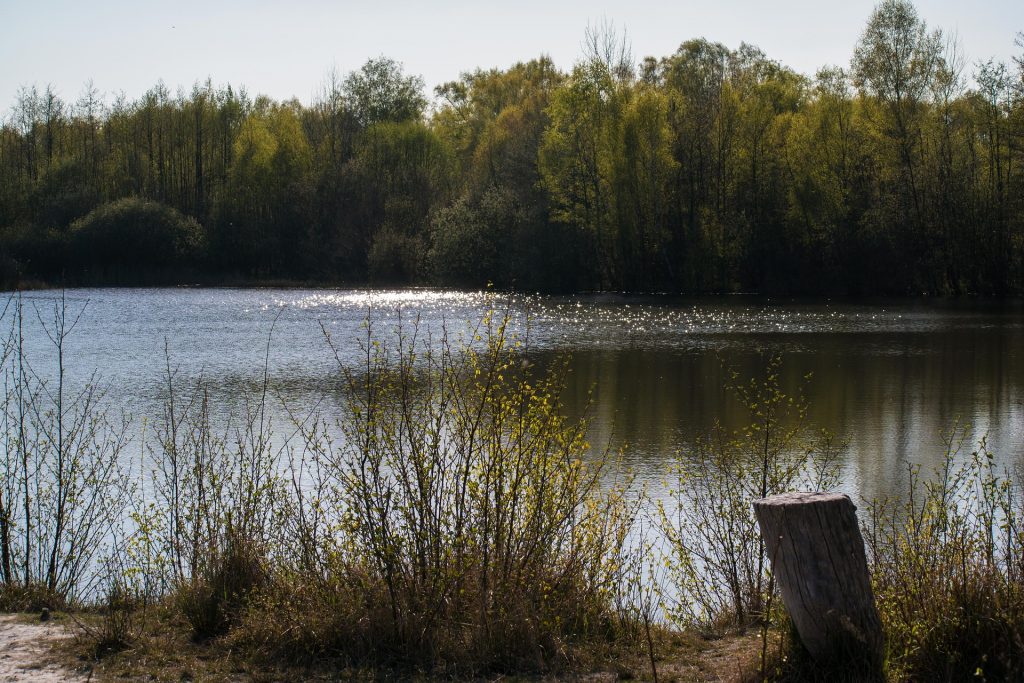
Since God is present, the Divine is ever revealing its nature and truth directly to us. We need no intermediaries, no priests, and no theologians to decipher the Creator’s truths. Ours is indeed a living faith. When I now pray or participate in ritual alone or in community, I am sensing a growing spiritual connectedness. The Divine presence is more vivid to me now than in all those years I practiced my Christian faith. I am at last home. In this, I can truly “rejoice and be glad.” Indeed, this is a new day which the Great Mystery, the Lord and Lady have made.
Besides our personal devotions and walking our daily path, we may find strength in community. We need not face the religious intolerance alone. Confronting the widespread ignorance with the support of a Pagan community is indeed a God-Goddess-send, if you will. Yet for some, Pagan community is a hard or almost foreign concept to embrace. Often Pagans find it easier or even necessary to withdrawal from an intolerant society and walk a solitary path. Many do not know where to find others like us. When we find the web sites, study groups, organizations, covens and churches, such as Unitarian Universalist, we emerge from our solitaire paths and share our common spiritual journey and struggle.
My path involved letting go of the pain of many years of personal internal struggle. It is in this sense that I am recovering. Breaking free of my narrow Christian upbringing while appreciating and incorporating some Christian traditions and beliefs within my path is a peaceful place to be. Tangible examples of this synthesis was my purchase of a St. Francis statue for which I built a shine in my front yard and placed a water font at the entrance of my prayer lodge in my back yard. The symbolism of the water is similar to the Catholic holy water font at the entrances to their churches. A simple thing but now as a Pagan, I can enter Catholic churches and bless myself with the holy water once again. It will not be with the same belief but I will conduct my own ritual in reverence.
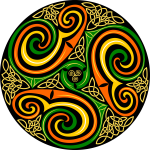 My spiritual path as a ‘born again and again’ Pagan affirms a process. It is a journey of achieving deeper spiritual harmony receptive to the ever-present and divergent Divine truths. In the words of Dr. diZerega, “In the final analysis, the value of a spiritual practice is determined by how well it brings us into a better relationship with what is Highest and most Sacred” (8). Keeping true to this principle, years ago I re-entered a Christian community, an Episcopal Church, as a professed Pagan. At the time, I was exploring Creation Spirituality as expounded through the writings of Matthew Fox. Rev. Fox is an Episcopal priest who was expelled from the Catholic Church by the pope when he was a cardinal overseeing the modern equivalent of office of inquisition and defender of ‘party line’ church dogma. I referred to myself as creation-centered which includes a Christianity that I was never taught and suppressed by the Christian church through the ages. As a creation-centered avowed Pagan religionist, I co-facilitated a study group on one of Fox’s books at the Episcopal Church which was well received by my Christian brothers and sisters. I have since moved on.
My spiritual path as a ‘born again and again’ Pagan affirms a process. It is a journey of achieving deeper spiritual harmony receptive to the ever-present and divergent Divine truths. In the words of Dr. diZerega, “In the final analysis, the value of a spiritual practice is determined by how well it brings us into a better relationship with what is Highest and most Sacred” (8). Keeping true to this principle, years ago I re-entered a Christian community, an Episcopal Church, as a professed Pagan. At the time, I was exploring Creation Spirituality as expounded through the writings of Matthew Fox. Rev. Fox is an Episcopal priest who was expelled from the Catholic Church by the pope when he was a cardinal overseeing the modern equivalent of office of inquisition and defender of ‘party line’ church dogma. I referred to myself as creation-centered which includes a Christianity that I was never taught and suppressed by the Christian church through the ages. As a creation-centered avowed Pagan religionist, I co-facilitated a study group on one of Fox’s books at the Episcopal Church which was well received by my Christian brothers and sisters. I have since moved on.
In conclusion, I believe those of us as Earth-Centered as Pagans, we must confront the ongoing indifference and religious intolerance around us. We must do so not only for our own spiritual, emotional and intellectual integrity but also for the young people struggling as many of us have had to do. Let us as elders, work for a world where those who come after us find more tolerance and understanding. I believe each in our own way must accept this task, but we need not do so alone. In community, rather a study group, coven or church, we may find strength and support to walk our divergent spiritual paths on our roads which may be indeed less traveled but no less beautiful! Blessed be.
This article was published as the cover article in the summer 2002 edition magazine of the national Covenant of Unitarian Universalist Pagans and updated with minor revisions in 2007, 2015.
Notes:
*1 Pagan — The word’s origin means “country dweller.” It is a broad category encompassing earth and nature centered pre-Christian indigenous religions of many continents and cultures as well as their modern expressions. Modern Paganism is a rich kaleidoscope, orientations and on-going revelations. It came to mean any body who wasn’t Christian or of the “true” faith.
*2 Red Road – Native American, or Indian, Indigenous spirituality available to all of the Creators children, non-Natives who walk this spiritual path. See the works of Ed McGaa, Eagle Man, Native Wisdom, 1995; Mother Earth Spirituality, 1990; Rainbow Tribe, Ordinary People Journeying on the Red Road, 1992.
*3 Weinstein, Marion, Positive Magic, Llewellyn Publications, 1978, 1994.
*4 Fundamentalist — I am lumping together Christian fundamentalist and evangelicals to separate this group from the more liberal and less proselytizing segment of Christianity.
*5 Wiccan – Wicca, the religion practiced by witches, is one of the fastest growing religions in the United States. Wicca is an Earth-based religion founded on ancient beliefs honoring both the God and the Goddess. Not all Wiccans are witches. Witchcraft is an ancient Celtic religion; it means “craft of the wise” or “craft of the dedicated.”
*6 Satan — Throughout the rich and varied Pagan histories there is no concept of the Christian Satan as such. Thus, it is really nonsensical to accuse Pagans of worshiping or following something they don’t believe in. Satan is a Christian trip, not a Pagan one. Their attacks against us using Satan is an example of the Christian church’s misinformation and untruths.
*7 Gus diZerega, Ph.D., Pagans & Christians, the Personal Spiritual Experience, Llewellyn Publications,
2001.
*8 Ibid, diZerega.

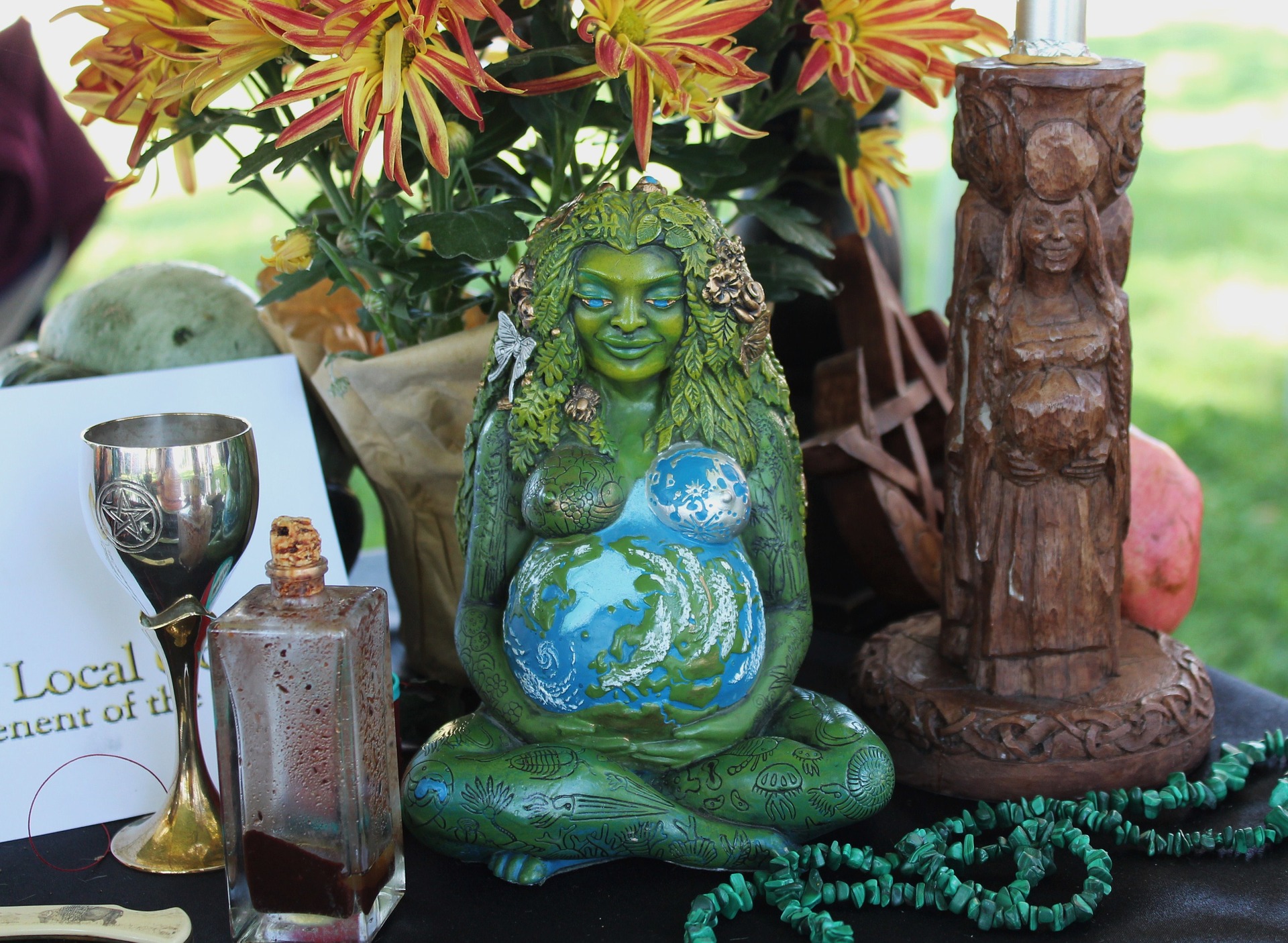

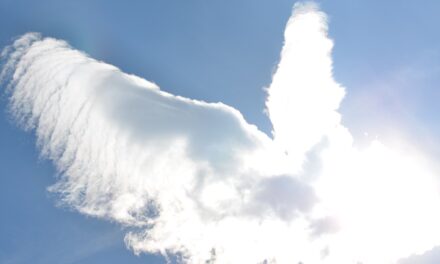




Amazing Site. Really enjoyed reading.
I glad you enjoyed sharing the journey. Blessed be.
I’m glad I found this site. I keep being called to the Pagan way of life. But I too come from a devout Catholic Mother. I went through Catholic school and my high school years in public. I was devout Catholic as well. Alter girl in my youth as well. Then once I became a teenager I started to sense that I truly wasn’t devout Catholic and that’s when I started to be more interested in Paganism it felt like it was who was meant to be. If that makes any sense. I have just recently in my 30’s realized I no longer claim my Catholic religion as my own. But my interest in Paganism is growing and that feels more right with me. Thank you for the article!
I too am Catholic but am being increasingly drawn to Nature and Paganism. I regularly feel genuine peace, contentment and connectedness in the woods, things I have never felt in church. In a sense, my Catholic beliefs are already dead but I am still lugging them around to please others so that they won’t ostracise me. That has got to stop. The Churchs dogmas regularly border on insanity, and when I realised just how many Catholics completely ignore them to remain Catholic and still go to communion, I came to understand that those dogmas were ridiculous and therefore unliveable.
No one in the RCC is prepared to identify the elephant in the room which is the question: “why are all the younger people leaving and where are they going to?”
This really spoke to me. I’m a recovering Christian myself. I feel that Paganism may be the cure for me.
I am late sorry
Where have you been all my life? As one who has lapsed and with occasional bouts of Catholic guilt I needed this. I have found meditation to give me more peace than five rosaries. I’ve always felt that the ancestors were speaking to me but dared not say around certain family lest I be perceived as a “devil worshiper” (yeah I got one of those holier than thous in my family too)
To the responder “where have you been all my life” The connection is a beautiful thing! As the author of the piece I firmly attest my belief that it truly speaks to many thousands of spiritual seekers from a Catholic and Christian background. Blessed Be
This article spoke to me!
I googled: Christianity to Paganism (out of curiosity) and I found your article. My story is a little different I was baptized Catholic at the age of 8. I switched to Paganism from age 16 to 28. Then at 30 I felt I was breaking down due to being in an abusive relationship and life brought me to get baptized Christian. However, the entire time I was Christian my draw to being a witch never left me and I felt super guilty for it. My Pastor would say the occult has you and well the end result is I am 36 now and a recovering Christian born again Pagan. Perhaps I was a witch in many previous lives before this one but being one with nature is my calling. I believe God is all around and that God is both woman and man God is everything and everywhere and so an Eclectic best describes what I am since I like to also adopt Buddhism practices. First and foremost I am an eclectic witch and I wouldn’t have it any other way. Never in my life have I practiced black magic, hoodoo, voodoo or Santeria nor do I ever want to but White Magic, divination and healing appeals to me more. I just hate how when someone hears the word “witch” they automatically assume all witches practice dark magic and commune with the devil but they can stay thinking what they want because that isn’t me, again thank you for this article and I am happy to be home.
Thank you and welcome “home.” As I mentioned in my article of a follow traveler in a class I conducted made a comment that when they finally found Paganism it was if they were trying on an “old comfortable shoe.” As it was for me. Also, as an eclectic witch, appreciate you addressing further the Satan and black magic stuff that people ignorant of who we are throw our way. Blessed be my sister.
I found your story hopeful! I was born and raised as a Later-day Saint (Mormon). Since a teenager, I had my doubts about Christianity, in general. Now, in my late 40’s, still having a faith crisis, I keep coming back to the idea of paganism.
It almost feels like something is missing, like I’m not whole. I really do love my religion and my family within it, but it feels like it’s not enough… Does that make sense?
Any suggestions on reading material to help me make sense, or help lead me in the direction I need to go? With the little research I’ve done, I’m leaning towards Animism.
Thank you!
Dear Trish, appreciate that you found my “story hopeful!” For us seekers, yes, it does make sense to me how torn one can be with the religion we were raised feeling that “something is missing” with thoughts of “like I’m not whole.” I believe that this is a positive, a sign of personal strength and integrity. Spiritual seekers dare to question that which we were raised not to question. We embrace not blind faith, but uncertainty. We honor our own rational mind. Per your request on “any suggestions on reading material” I will forward you a reading research list I compiled over the years you may find helpful. As a fellow traveler, thank you for reaching out. You are not alone. Trust your heart and spirit. Enjoy the journey.